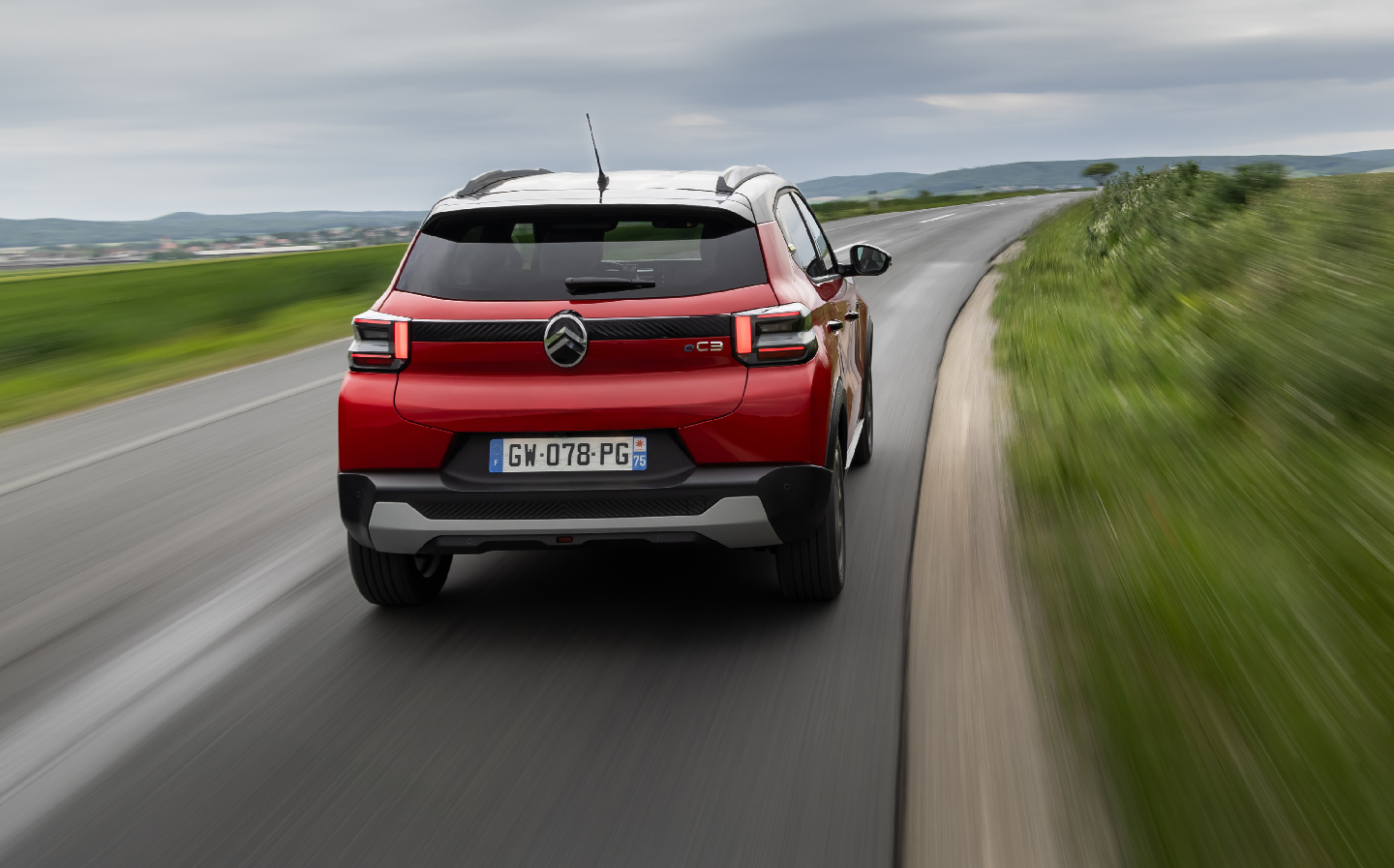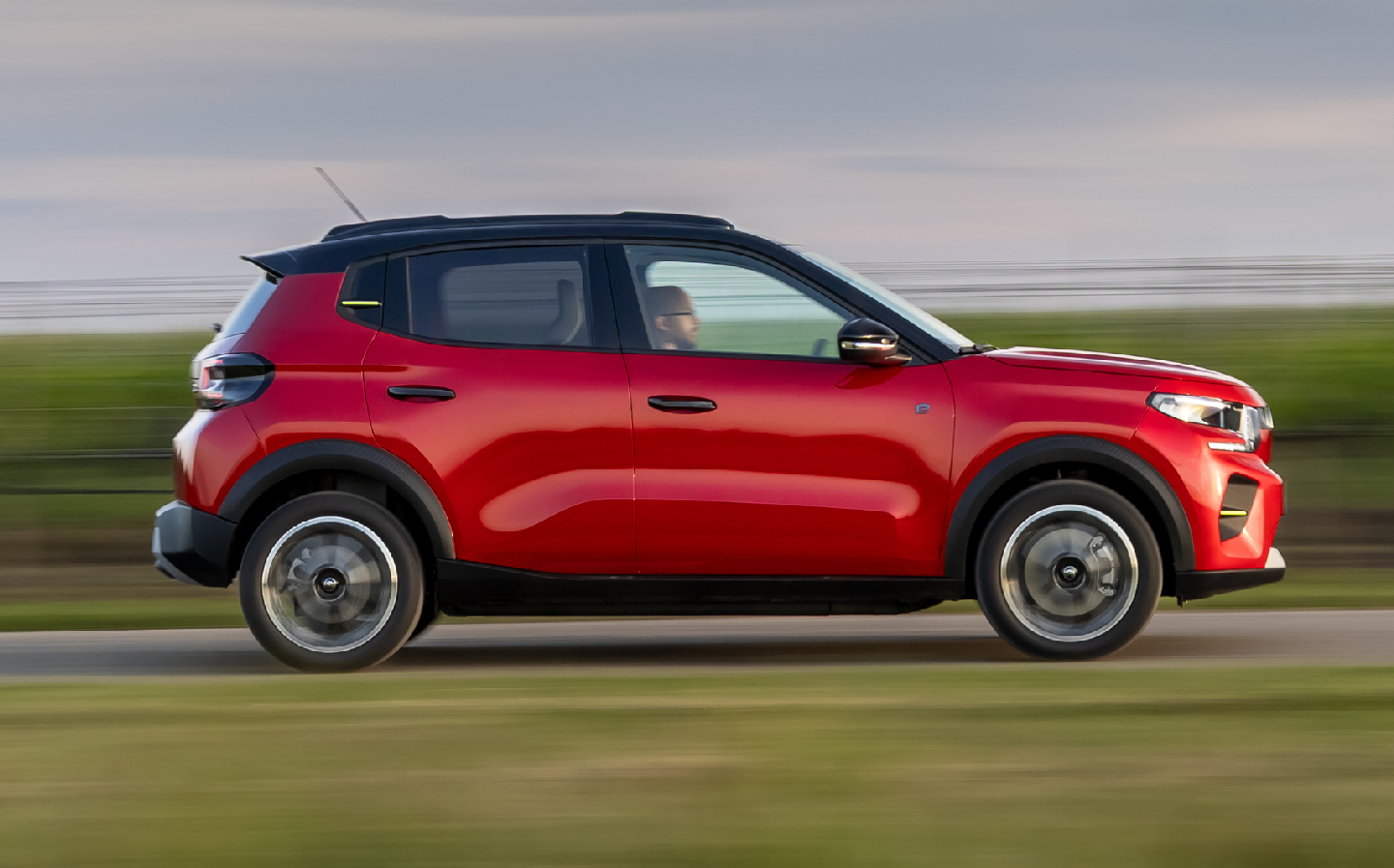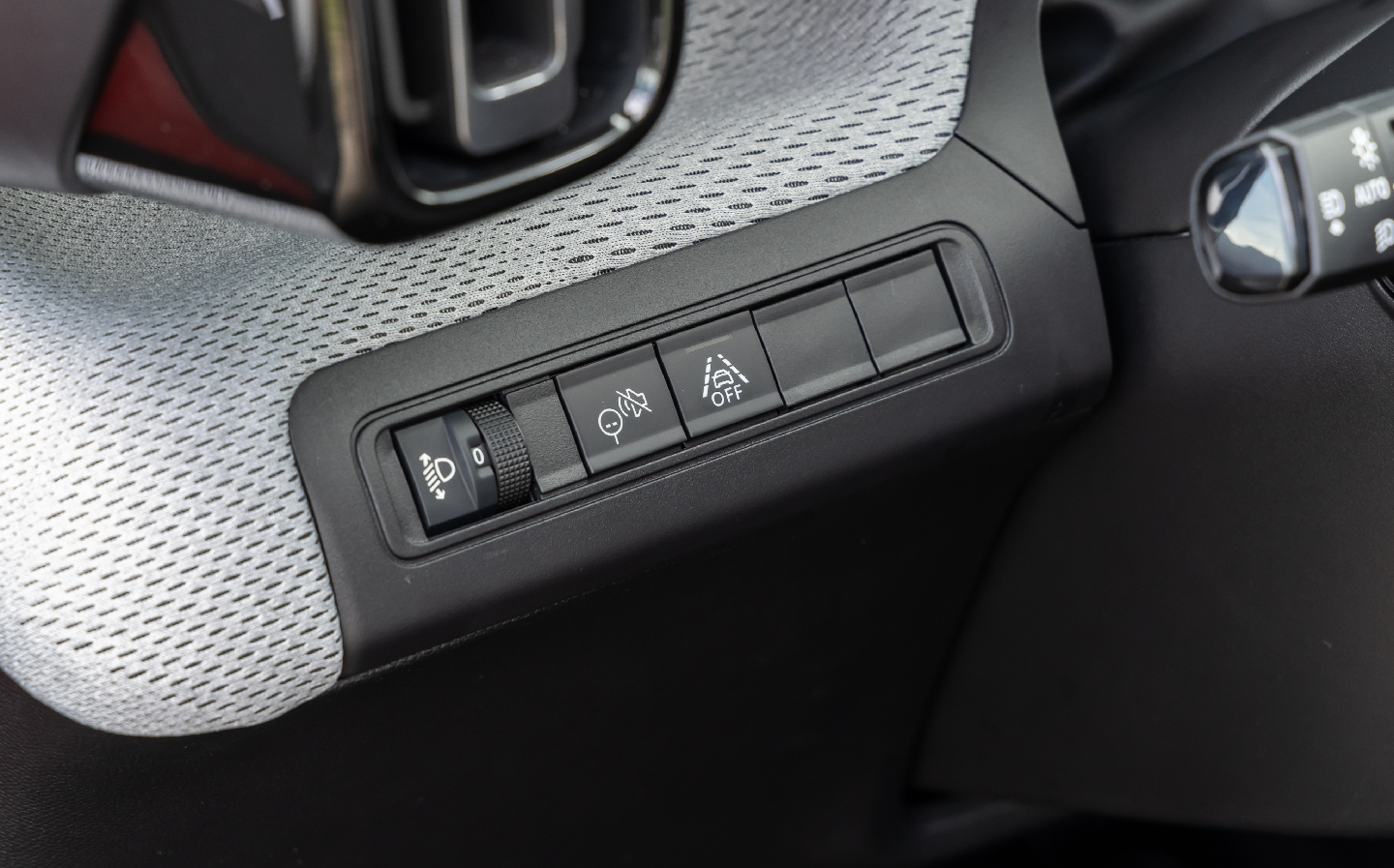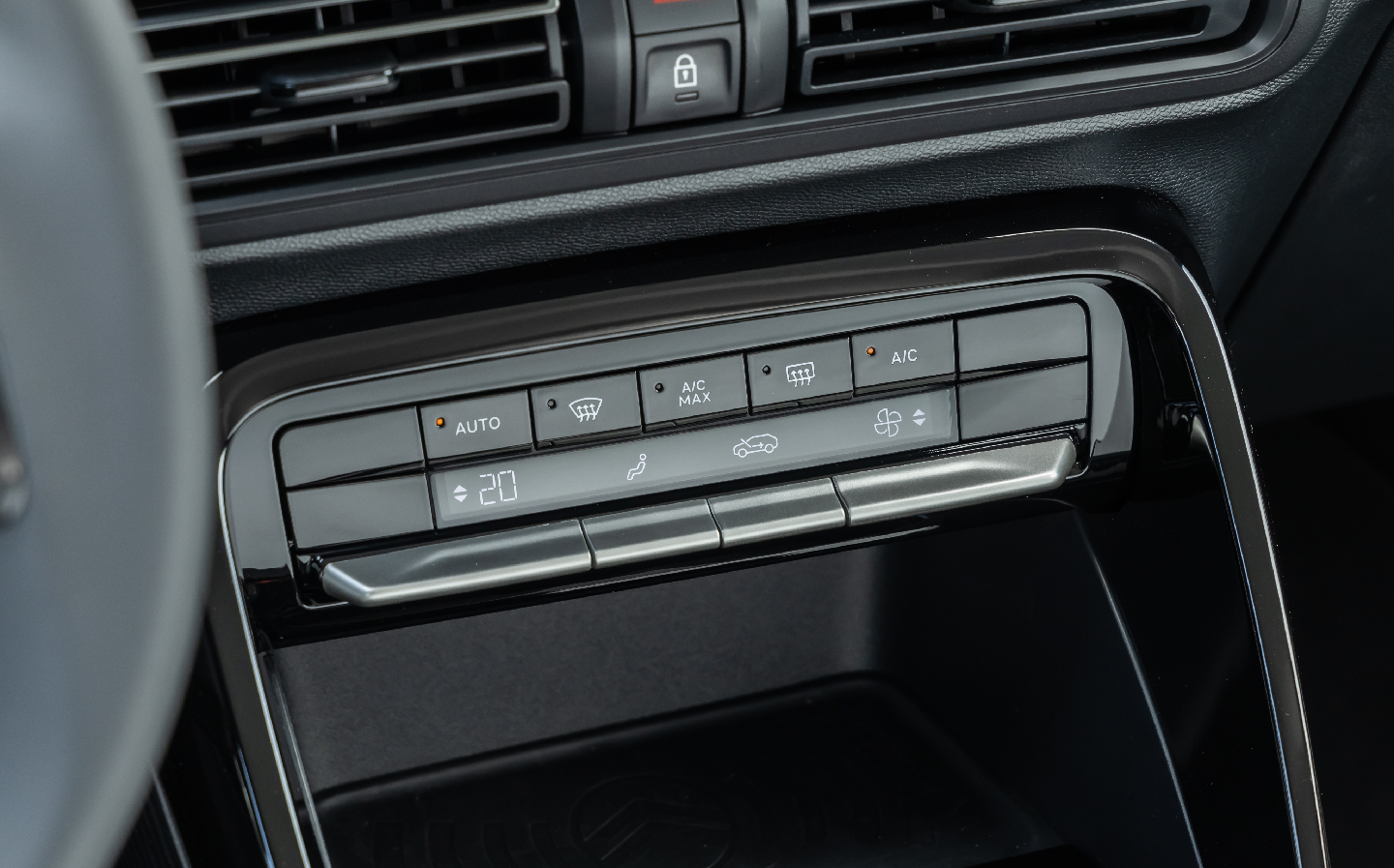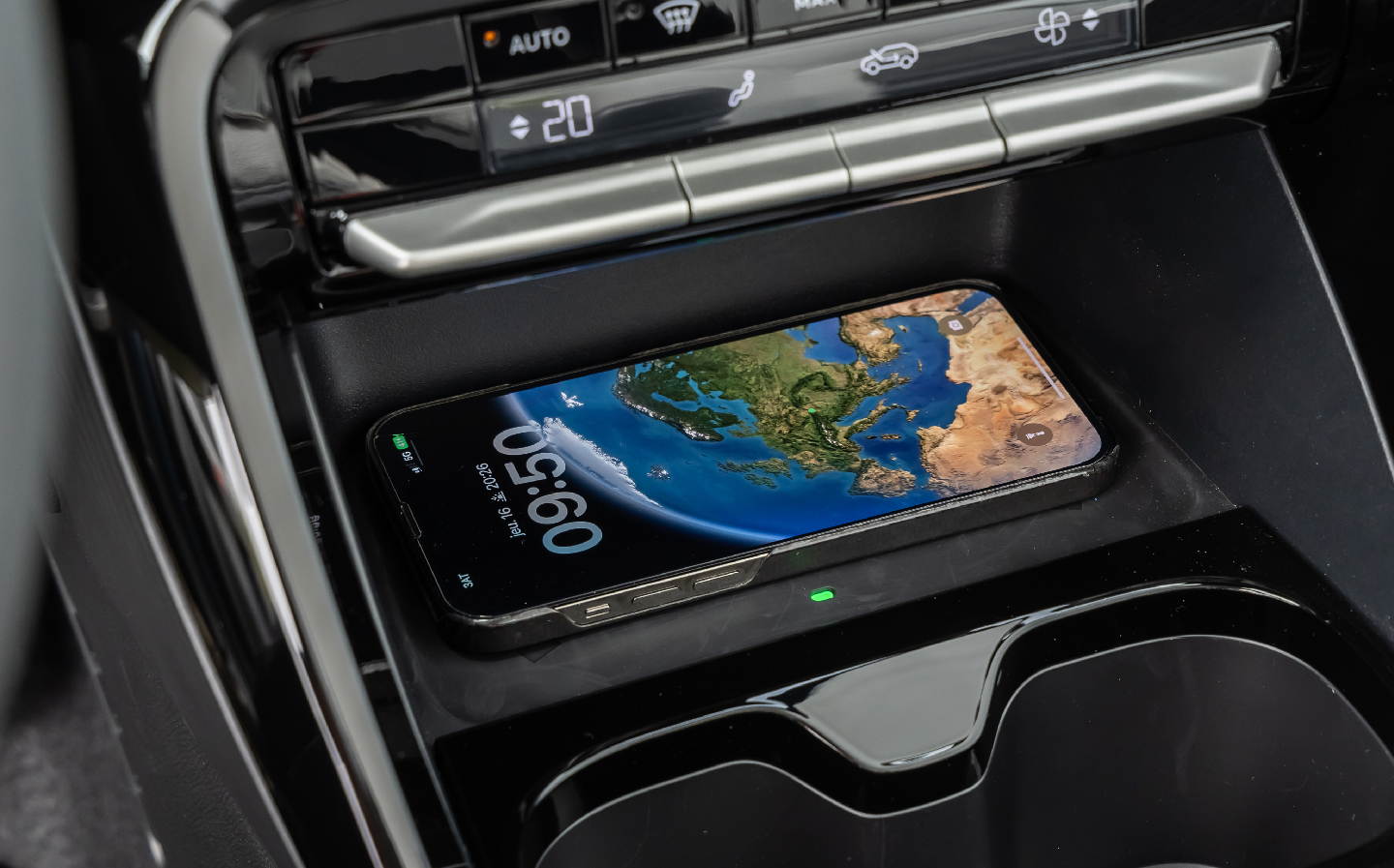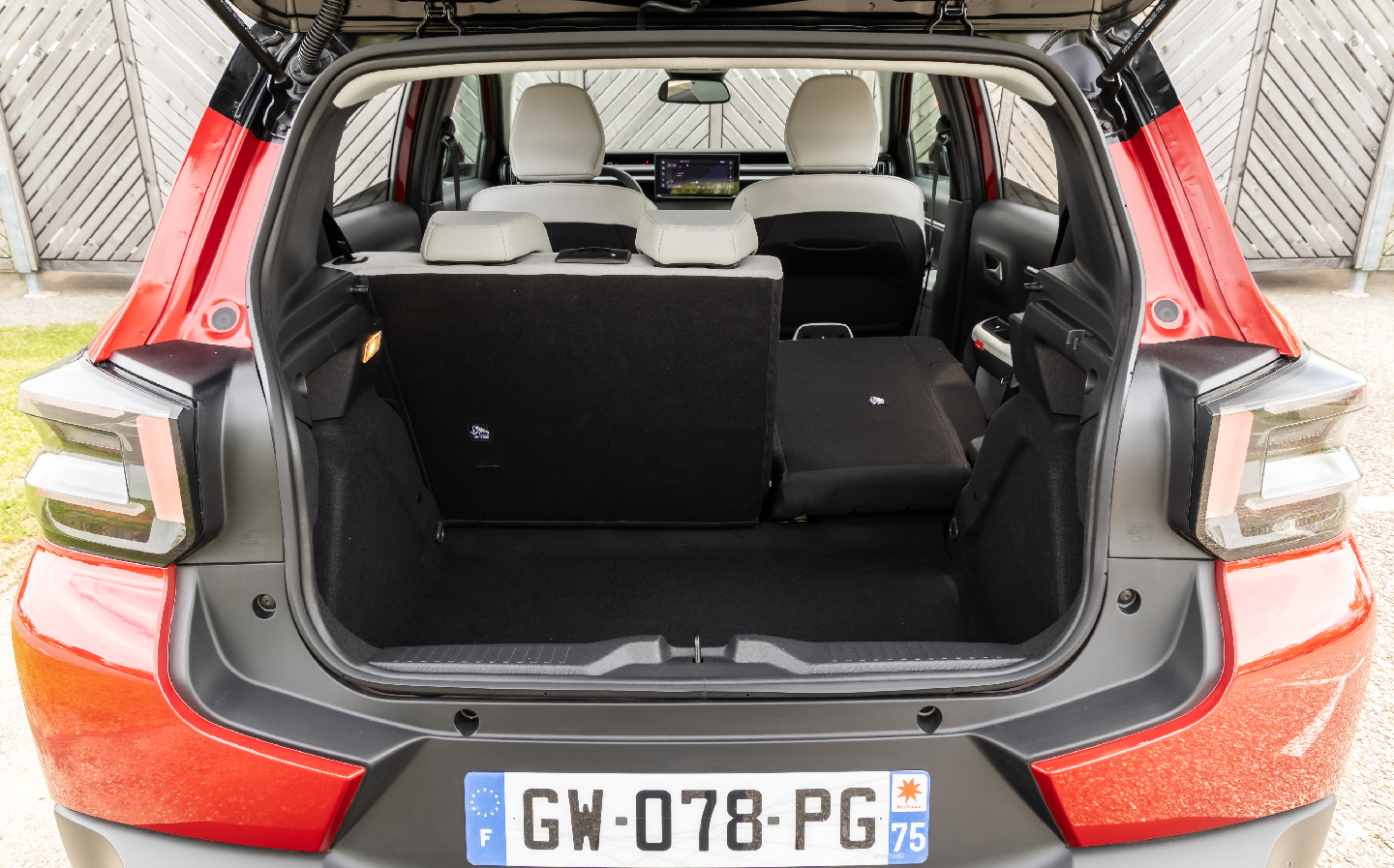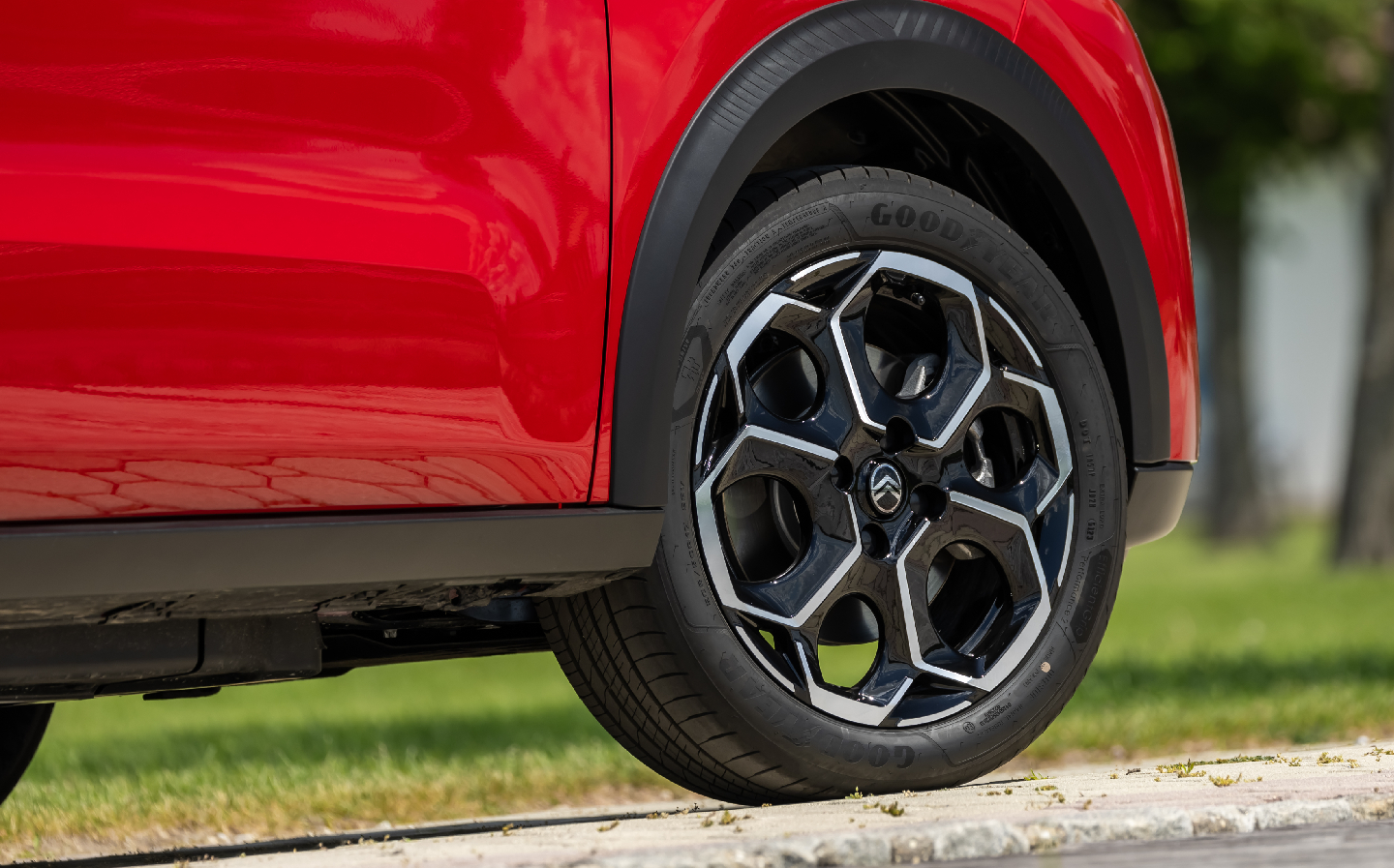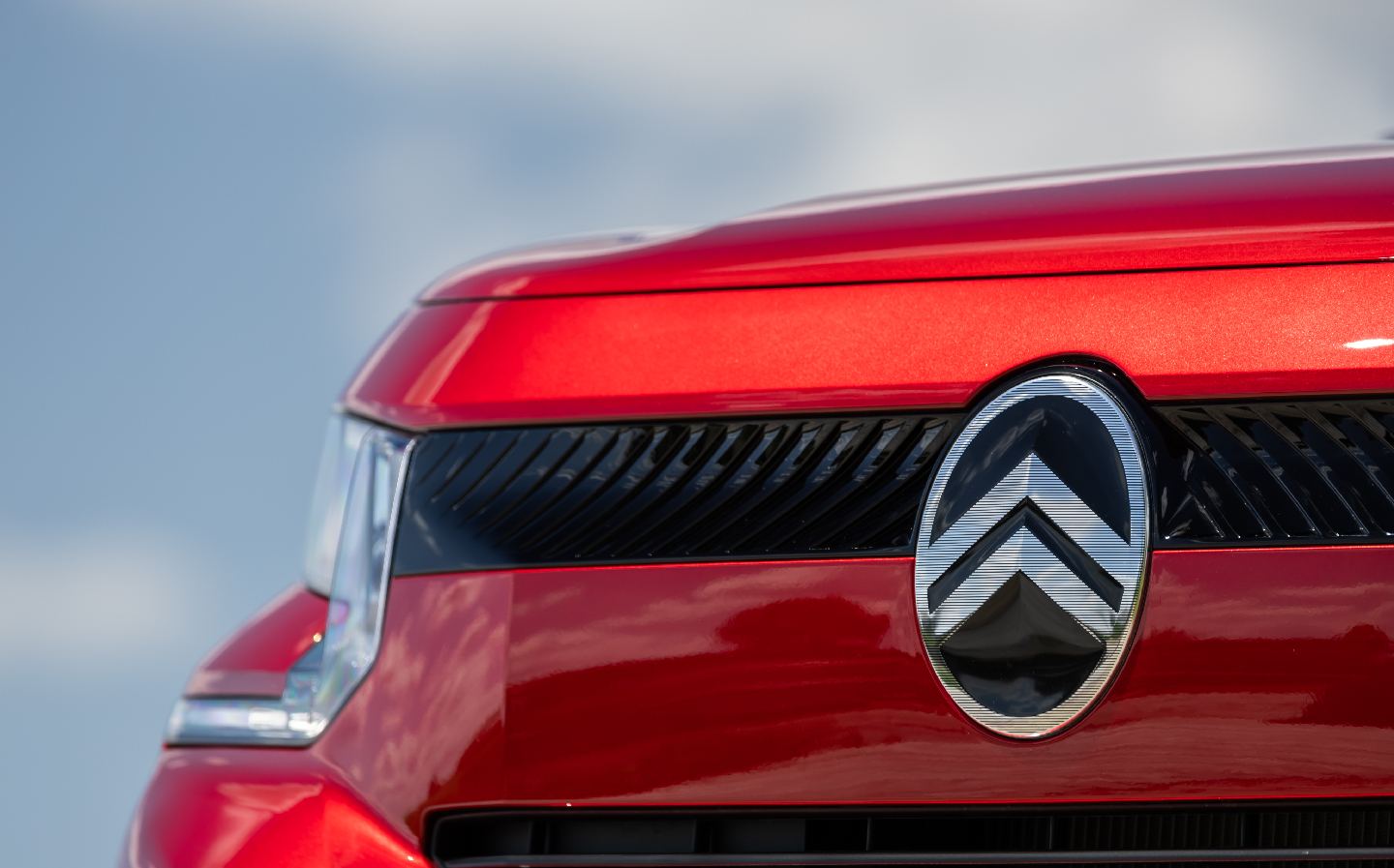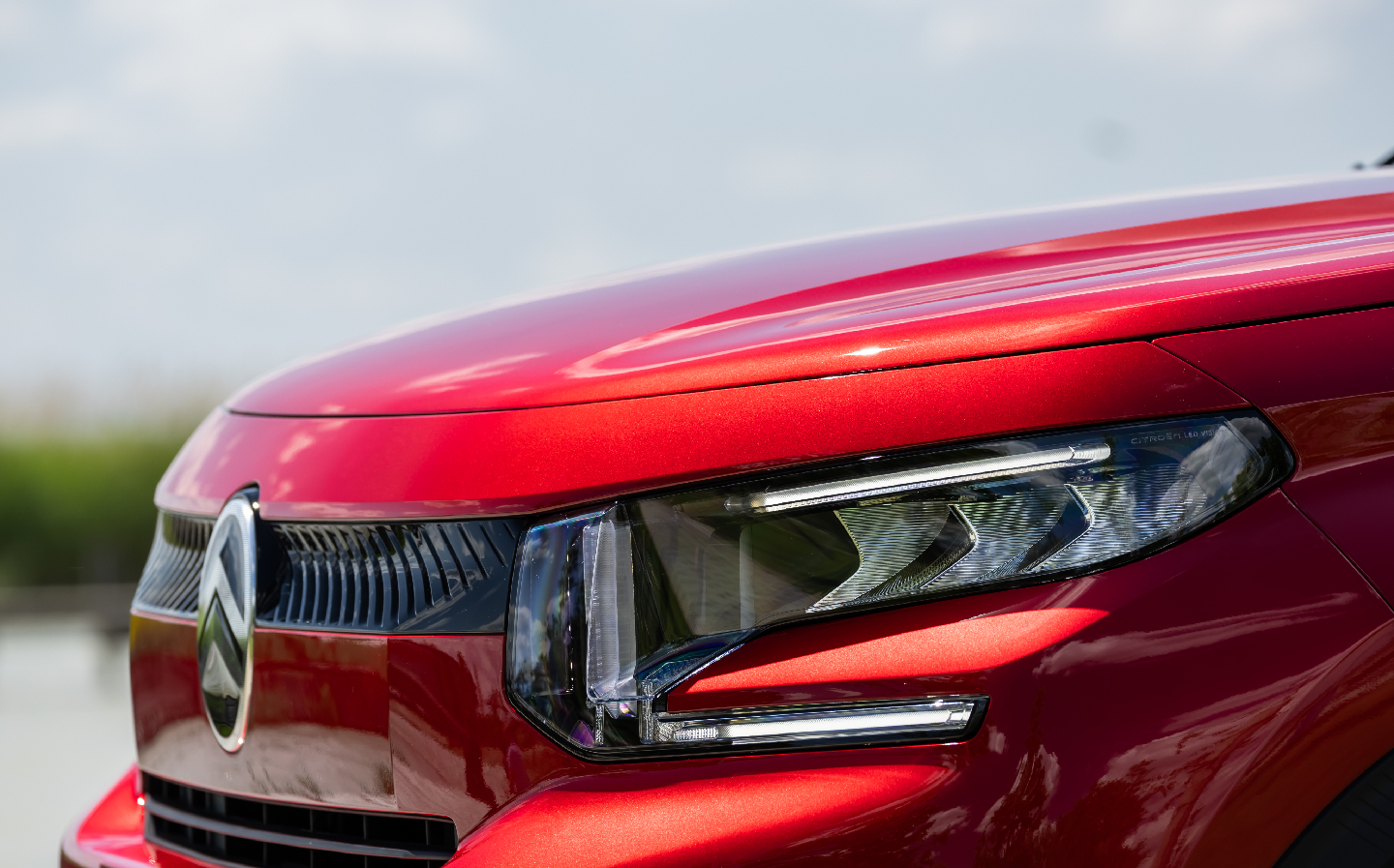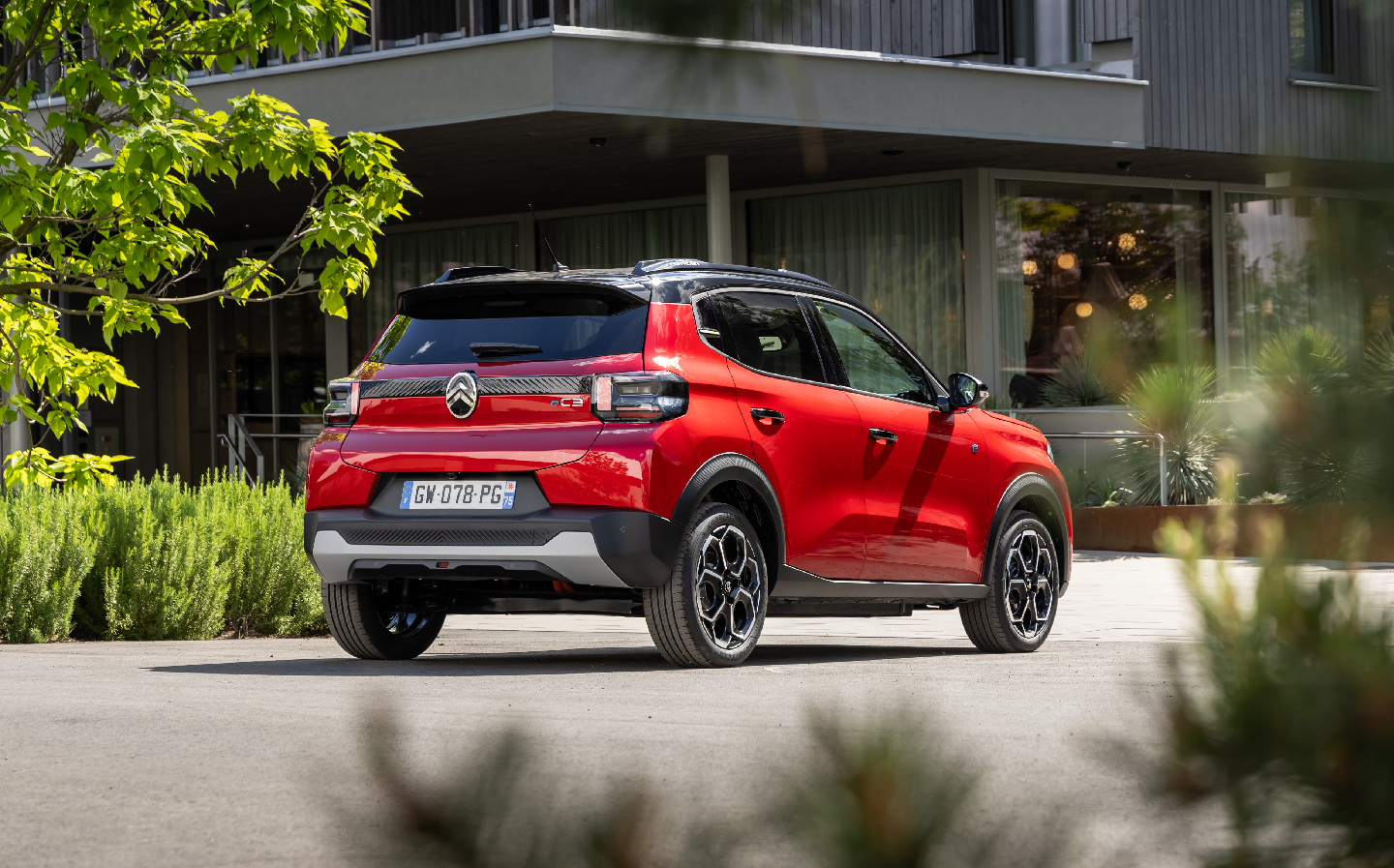Citroën C3 and e-C3 2024 review: Petrol or electric, bow down before the new king of value cars
Chapeau, Citroën: this is just what Europe needed
Can a car tick all the boxes? The new Citroën C3 looks unlike any C3 that came before, giving drivers what they seem to want: SUV looks, a higher stance and more room inside. It’s still a compact car, though, and almost unbelievably is the same length as before, which means it will still appeal to city-dwellers and less confident parkers. This is basically what Ford did with turning the Fiesta into the Puma, but Citroen has had the good sense to keep the name going.
An electric Puma is still months away but the new C3 will be available in petrol and electric forms from launch, and there’s a hybrid version on the way later in the year, too, meaning there’s a version to suit all tastes.
The electric e-C3 isn’t designed to simply keep emissions regulators happy, either. It’s an EV with an advertised 199 miles between charges, which is impressive for such a compact car, and can rapid charge from 20-80 per cent in around 26 minutes.
More significant, though, is the price: Citroën is going to put the e-C3 on the market in July for as little as £21,990, making it one of the most affordable EVs out there. It’s not the cheapest — that title goes to the Dacia Spring) — but it’s arguably the best value model to date due to its equipment and battery size.
What’s more, the French brand hasn’t done this by farming out the production to China: the C3 was designed and is built in Europe. Bravo.
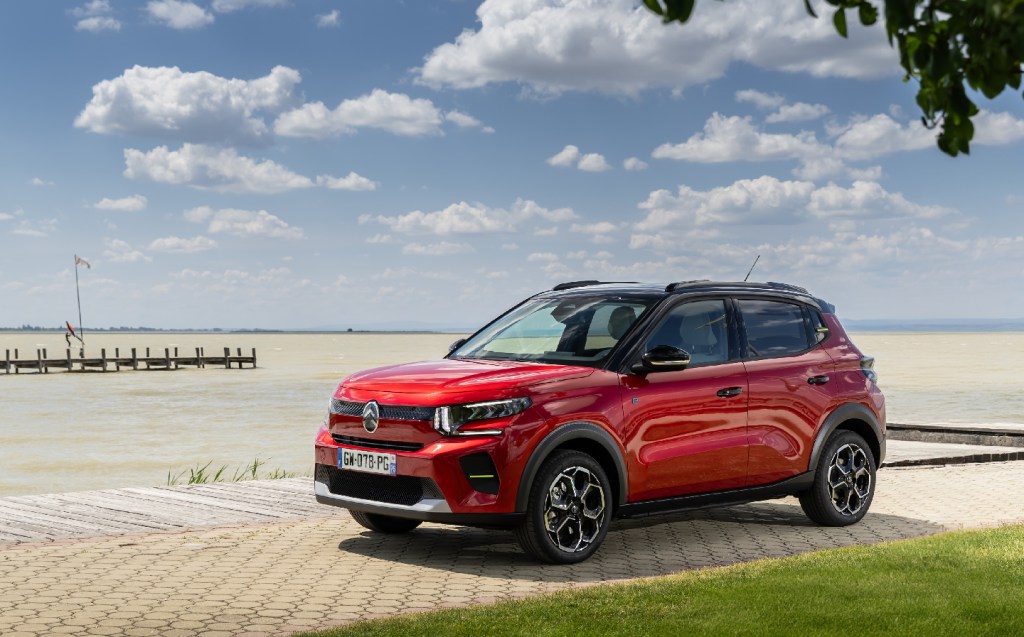
Let’s address the elephant in the room, though: not everyone is a fan of SUVs and crossovers, so the C3’s change in shape isn’t going to please everyone. If you’re gnashing your teeth at the demise of the traditional hatchback, you should remember that there’s a reason crossovers are so popular: they’re easy to get into and out of; offer a more commanding view of the road; and provide added ground clearance to brush off the dual modern plagues of potholes and speed bumps.
A loss of quality road surfaces could be Citroën’s gain, as a comfortable ride is the brand’s main USP and the new C3 even gets what’s claimed to be clever suspension to help iron out the worst roads. The carmaker calls the tech “Progressive Hydraulic Cushions”, and it’s designed to add an extra level of absorption at the end of the suspension travel for the really nasty impacts, as well as damping the extreme forces when the suspension rebounds.
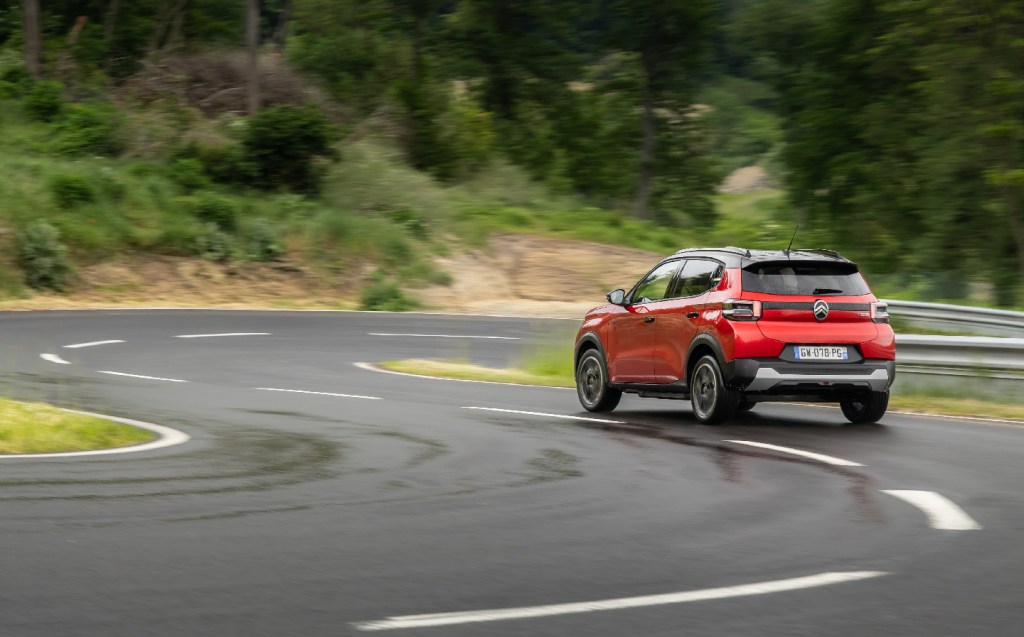
The way Citroën’s executives were talking it up in our briefing led us to believe we’d be in Roll-Royce-like levels of sumptuousness, but in reality the ride quality of the petrol C3 could only be described as decent. Yes, the hard impacts are definitely brushed off with aplomb, but for most of the time the experience isn’t like “riding on a magic carpet”, as the suits wanted us to believe, and most drivers will be unable to differentiate the ride quality from most other small SUVs.
Except, perhaps, for noticing that if you enter a corner with the exuberance of rally star Sébastien Loeb, the petrol C3 will roll enough for the occupants on the outside of the corner to feel like they’re scraping the asphalt. It doesn’t lean like a listing ship, exactly, but body control might be what you’d call “relaxed”. The steering feel is similarly laid-back, and relatively lacking in feel. But again, it’s acceptable, and the light touch is ideal for town driving.
I should point out here that we were given pre-production versions of the C3 and e-C3, which means certain aspects of the cars weren’t quite ready for customers (no driver aids; no central locking; no automatic air conditioning) but the suspension and engineering are all essentially as customers will find them when UK deliveries start in November.
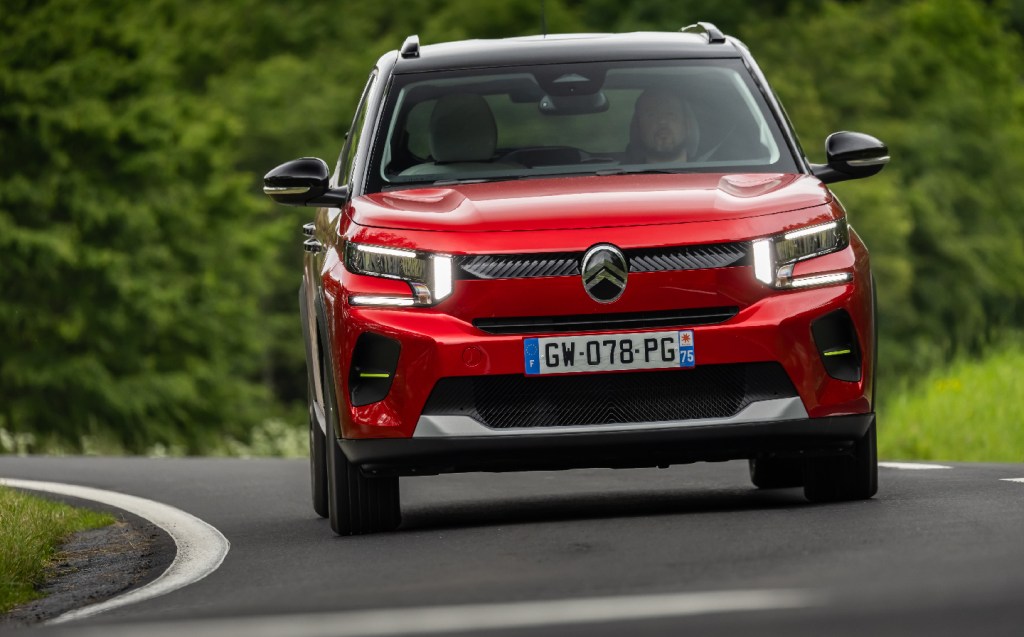
The e-C3 is actually a bit more composed than its petrol sibling, perhaps because of the extra weight of the battery under the floor, and this makes it better at removing both the jitteriness on highways and the tilting through turns. Which makes it the more pleasant to drive generally.
This is enhanced by the fact that the three-cylinder petrol engine’s thrum is gone, and you notice that the sound insulation overall is really pretty good for such a compact machine. You can hear some noise from the air passing over the mirrors but generally it’s an impressively hushed experience.
It’s not that the noise from the petrol engine is awful, by the way; I rather liked the tones produced by the new 1.2-litre unit, but once you’ve gone electric it’s not a noise you miss.
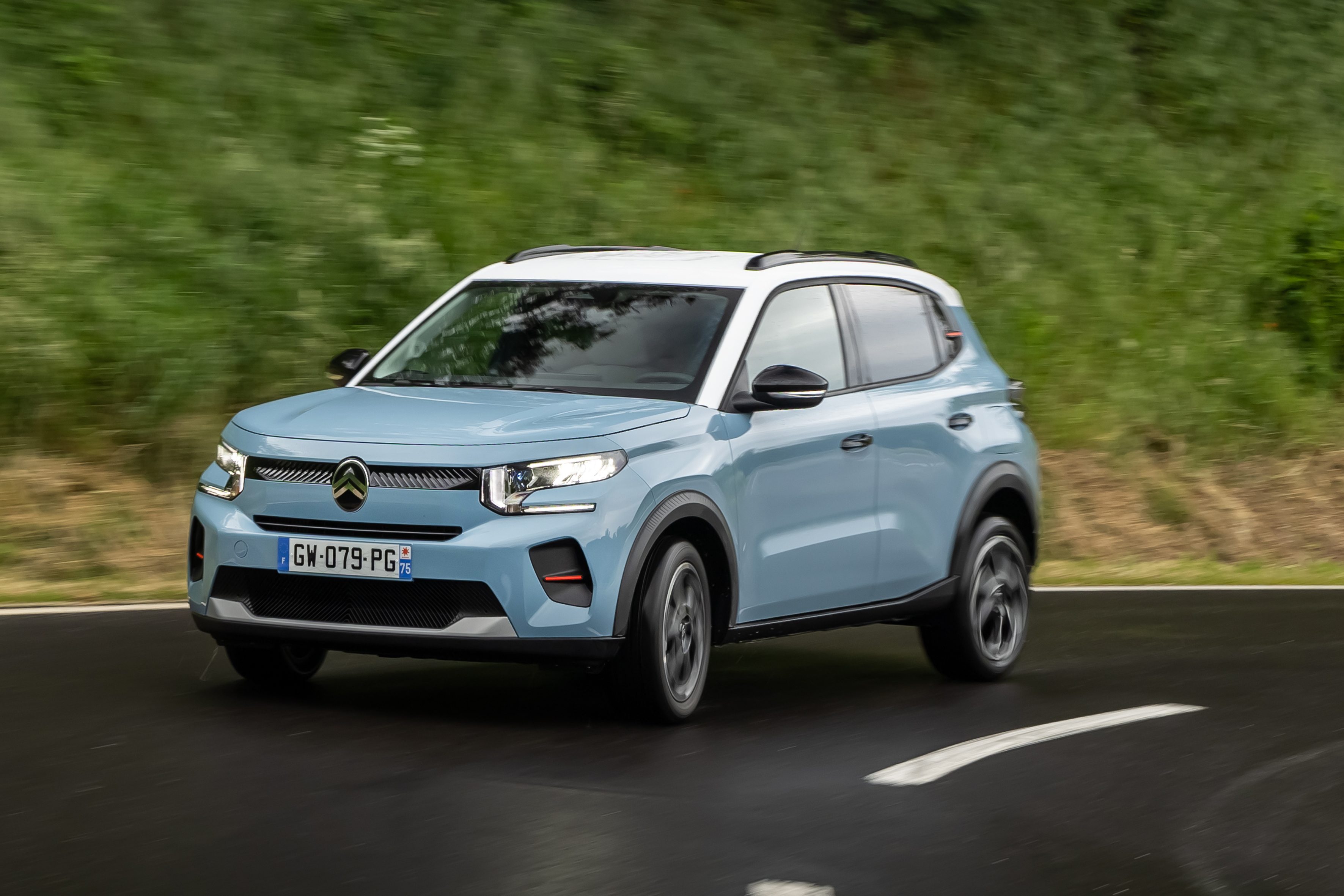
The combustion engine is a great improvement over the old one, though. Now with 99bhp, it no longer has to be abused to extract any kind of performance. Overtakes at any speed are fairly simple, and at no point did it feel sluggish.
No doubt the new petrol C3 (pictured in attractive blue and white colours above) will be the entry-level car of choice for many holiday rental firms, which means no longer will families find they’re struggling to keep the thing going in high altitude locales as the thing runs out of puff, as was the case with the old “three-pot” models. I know from personal experience while exploring the higher points of Gran Canaria, and having to use every inch of skill to stop our well-worn C3 from grinding to a halt. Enjoyable for a keen driver but no doubt terrifying for everyone else.
If there’s a criticism of the new car it’s that the six-speed manual gearbox is vague and loose, and the shifter is a cumbersome shape.
The e-C3 avoids these issues and has other advantages, too (beyond the obvious lack of exhaust emissions). With 111bhp and all of its torque (twisting force from the motor) delivered from zero revs, it pulls away from a standstill effortlessly and smoothly.
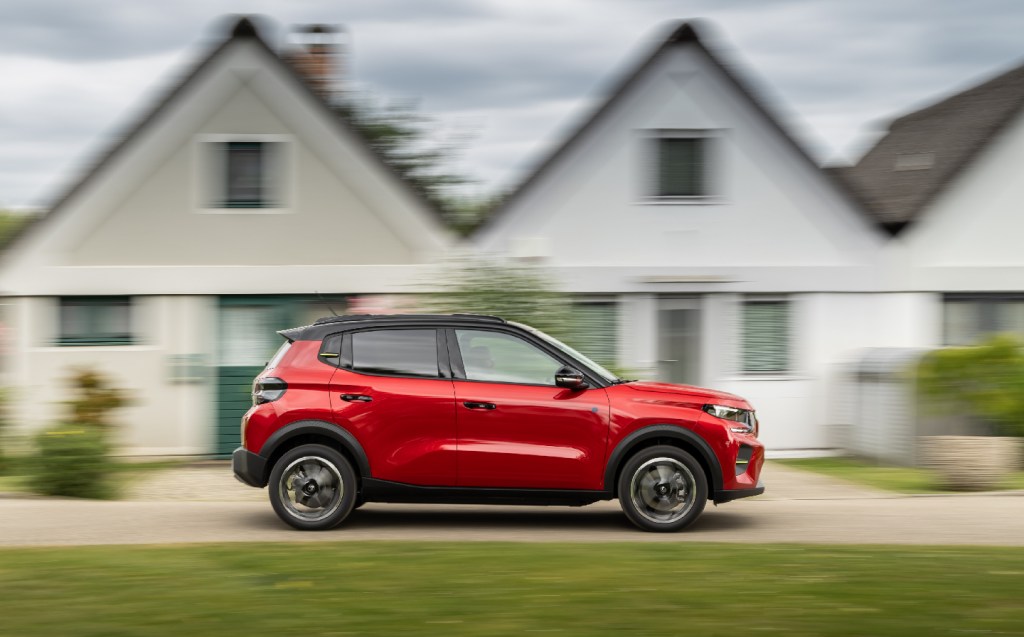
And as mentioned above, the range from the battery is really rather good. Its capacity of 44kWh makes it smaller (and lighter) than most on sale these days but the plucky Citroën manages to squeeze out that 199 miles (officially) all the same.
Don’t expect to achieve the full 199 miles in Britain, necessarily, where cold weather will affect the battery efficiency, and if you’re using the car on motorways it’ll be quite a lot less, but there’s reason to be fairly confident: over 35 miles of mainly suburban roads I saw a remarkable efficiency figure of 5.2 miles per kilowatt-hour, which suggests 242 miles is achievable around town in summer, assuming the pre-production onboard computer was accurate.
There’s more good news inside, whether you go for petrol or electric (or, indeed, hybrid), as it really does have a decent amount of space for occupants. The newly-designed seats are generously cushioned, of course, and at 6ft 5in I felt comfortable at the wheel, unlike in some other Citroëns of recent years, which have prodded my back in all the wrong places.
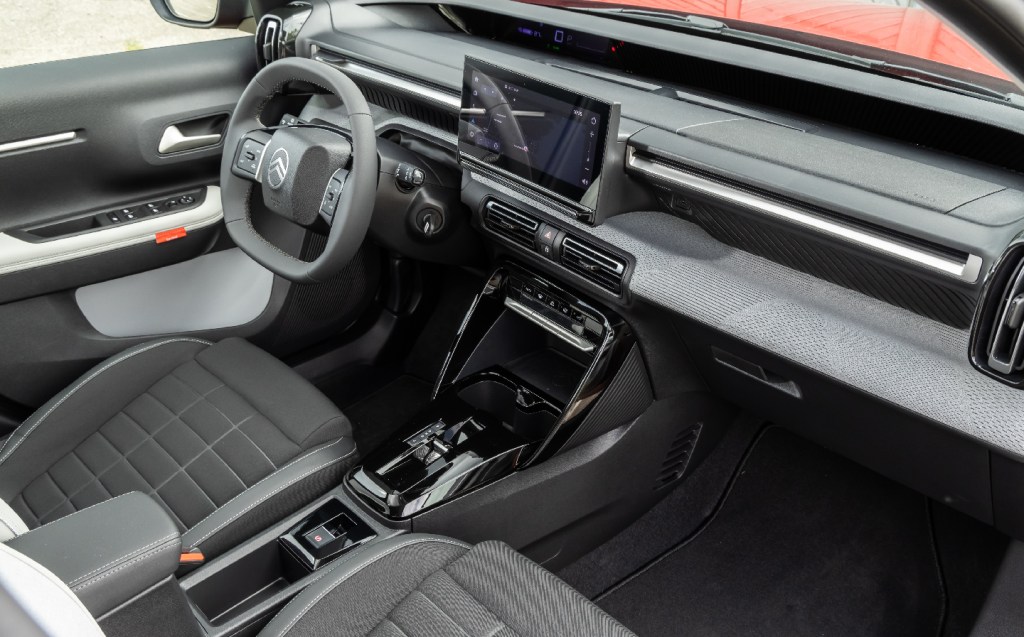
Rear seat passengers won’t feel hard done by, and there’s extra headroom thanks to the higher roofline.
What you might notice when climbing in and out, though, is where some cost-savings have been made. The doors close with a less-than-pleasing clunk, and the hinges are more exposed than you’d find on less affordable models. And while Citroën has made a good fist of mixing up soft and hard plastics with fabric materials, some of the materials used inside are less than premium.
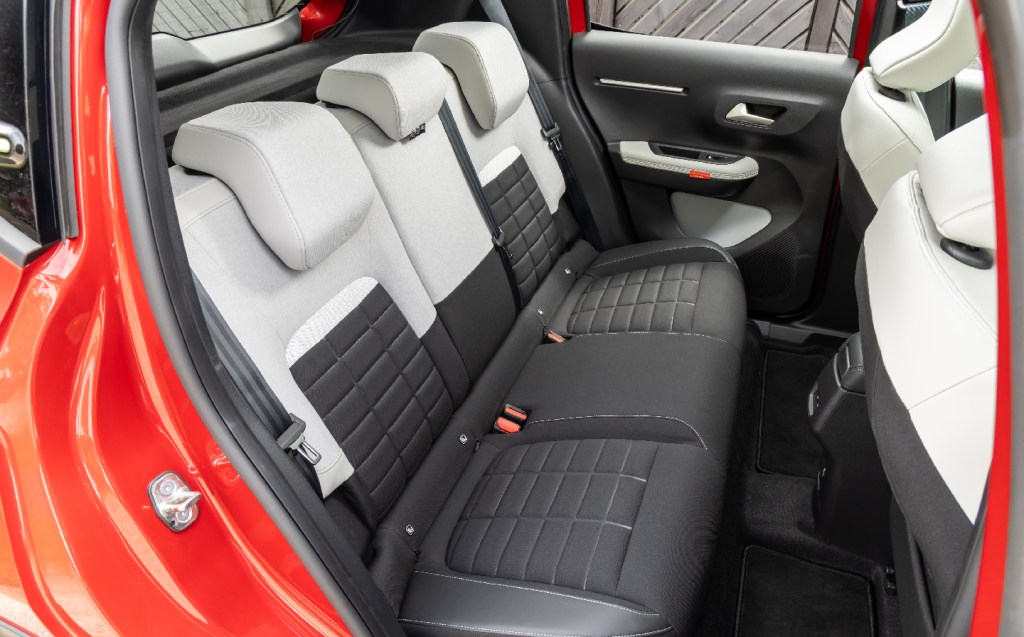
The most questionable inclusion, though, is the use of fabric tags, sewn into the armrests on the doors, with slogans that may have been considered a good idea in a French design studio but will be excruciating to most Brits.
They say “have fun” and “be cool”, and made my toes curl every time I spotted them. The head of design was only too pleased to take credit for this when I asked him about it over dinner, though quickly distanced himself when I suggested it might not be as successful as he imagined.
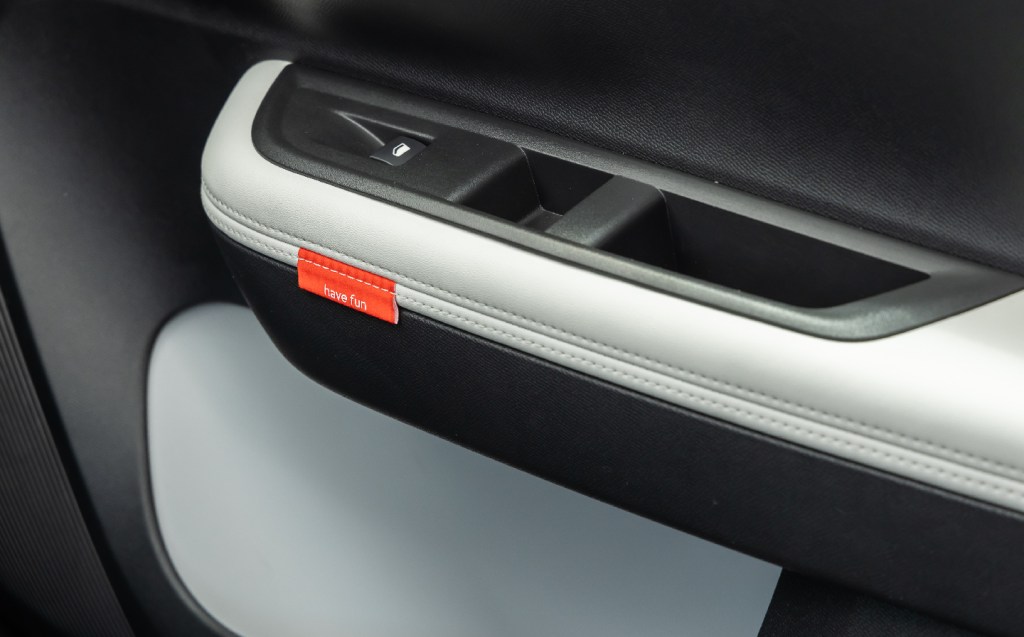
Still, one could argue that these, along with some interchangeable coloured-plastic trim pieces for the exterior, do help this car differentiate itself from the sea of other small crossovers.
The C3 is also well equipped, with the entry-level Plus models getting electric door mirrors, automatic lighting, rear parking radar, cruise control, power-folding and heated door mirrors, driver seat adjustment and a 10.25in colour touchscreen.
While that infotainment system is extremely basic, as they go — on our pre-production models, at least — it did prove fast-to-respond and all models run Android Auto and Apple Carplay, so the built-in operating system is almost irrelevant. Conspicuous for its absence, though, is a menu showing energy usage in detail.
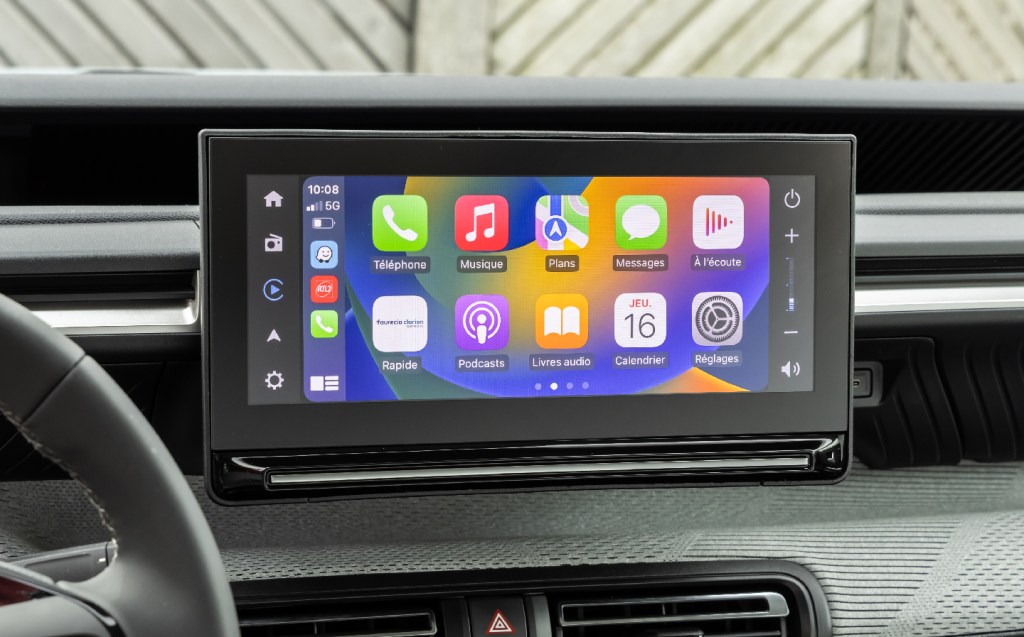
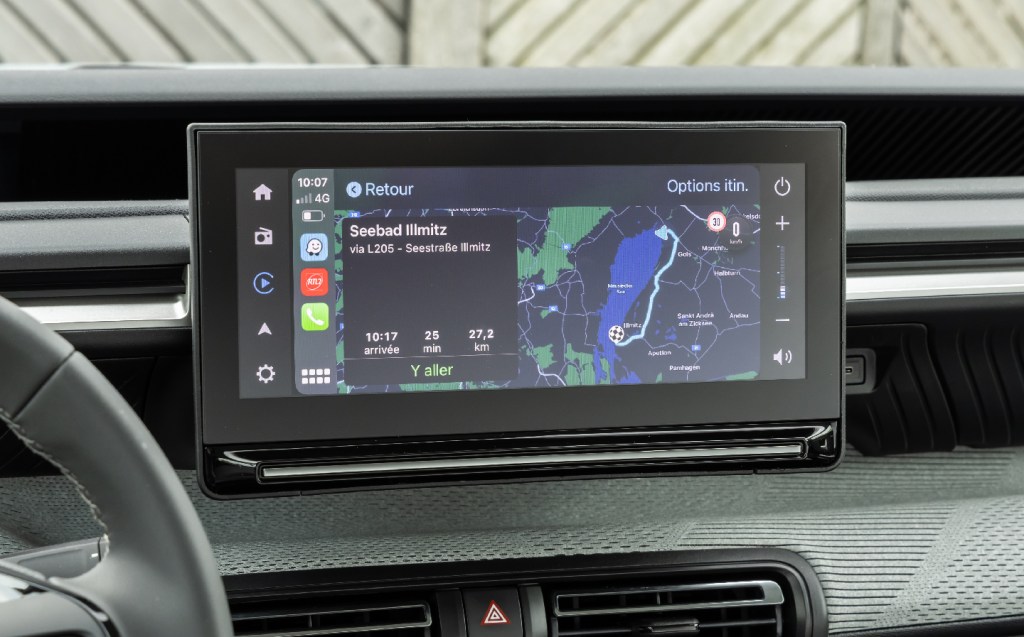
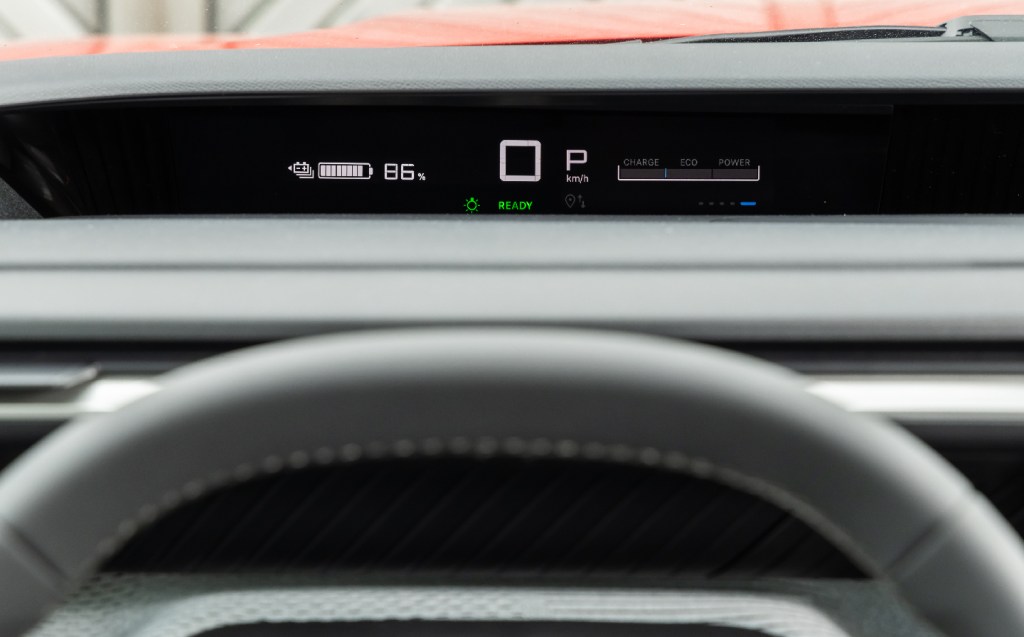
I also took exception with Citroën’s head of product over the use of the term “Head-up Display”, which all the marketing material claims the C3 and e-C3 has. It doesn’t: it has a small digital driver’s display positioned just above the steering wheel, built into the dashboard. A true head-up display is projected onto the windscreen directly in the driver’s line of sight while looking at the road ahead.
It’s a sneaky ploy, in my view, and I passed this on, but with the resolve of Rishi Sunak in a TV election debate, Citroën’s man stuck firm to his marketing team’s use of the term.
I’ll forgive him, though, given the astonishingly low price of the new C3. There aren’t many new crossovers that cost less than £20,000 in petrol form, and £22,000 for a 199-mile EV that is “built in Europe for Europe” definitely gives the rest of the market something to think about.
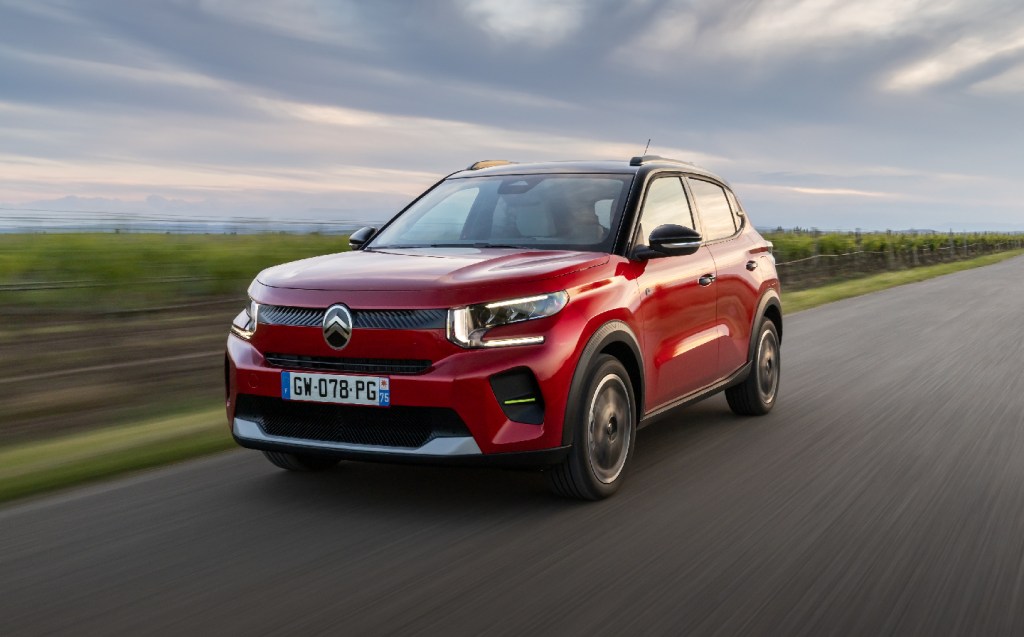
So what we have here is a car that redefines the term “value for money”, and whether you buy electric or petrol you’ll get into it every day with a big smile on your face. Though a little rough around the edges, the new C3 and e-C3 are cars that over-deliver on expectations and will tick most boxes for most people.
It looks good, is roomy for its size and feels like a place you could spend a good deal of time in comfort. The overall impression is that this is a very honest little car (“head-up display” nonsense aside) that owners will grow to love, just as people have fallen in love with Citroëns of the past. Because it exudes character, and in this day and age that’s not to be sniffed at.
Will can be found on Bluesky
Related articles
- If you enjoyed this review of the Citroën C3 and e-C3 you might like to check out the UK’s new cheapest electric car, the Dacia Spring
- Also take a look at the forthcoming Citroën C3 Aircross which gets electric power and up to seven seats
- And take a look at the four ways in which the car industry can introduce affordable electric cars, according to Citroën’s boss in an exclusive chat with Driving.co.uk
Latest articles
- Should I buy a diesel car in 2025?
- F1 2025 calendar and race reports: The new Formula One season as it happens
- Zeekr 7X AWD 2025 review: A fast, spacious and high tech premium SUV — but someone call the chassis chief
- Denza Z9GT 2025 review: Flawed but sleek 1,062bhp shooting brake from BYD’s luxury arm
- Extended test: 2024 Renault Scenic E-Tech review
- Best-selling cars 2025: The UK’s ten most popular models of the year so far
- Audi A6 Avant 2025 review: Trusty executive estate ticks expected boxes, and there’s still a diesel option
- Keir Starmer eases pressure on carmakers to sell EVs in response to ‘global economic headwinds’
- Ferrari 12Cilindri Spider review: Heady blend of traditional and futuristic becomes even more intoxicating after lid is removed



